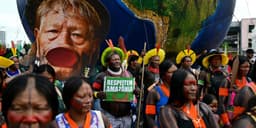Home / Environment / India's Youth: Inheriting Coal's Burden, Shaping Future
India's Youth: Inheriting Coal's Burden, Shaping Future
19 Nov, 2025
Summary
- India faces a 20-year window to shift from coal, impacting youth livelihoods.
- Young people risk inheriting environmental damage and uncertain jobs.
- COP30 offers a chance to fund a just transition for vulnerable regions.

As COP30 convenes in Belém, Brazil, the concept of a just transition is paramount, particularly for India's coal-dependent regions. Generations that grew up with the Brundtland Commission's call for a common future are now in decision-making roles. India's youth are poised to inherit the environmental legacy of coal extraction while navigating an uncertain economic landscape.
The nation has until approximately 2045, when coal demand is projected to peak, to prepare for significant social and economic shifts. This critical period necessitates the establishment of new industries and employment avenues to absorb the workforce displaced from the fossil fuel sector. Delaying these crucial policy interventions risks placing a disproportionate burden on future generations.
Addressing deep-rooted issues like generational reliance on coal, skill gaps, and ecological degradation requires strategic investment. COP30 offers a vital platform to advocate for a just transition fund, channeling the urgency of young people into inclusive, low-carbon development for resilient futures.




